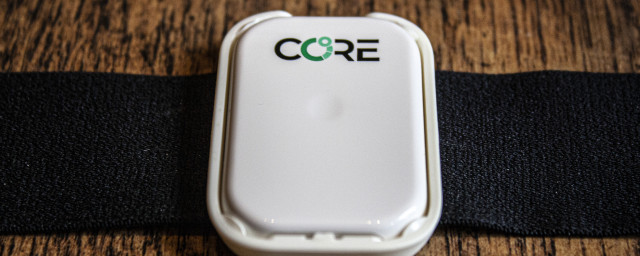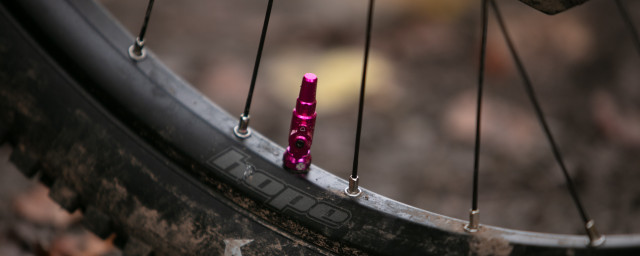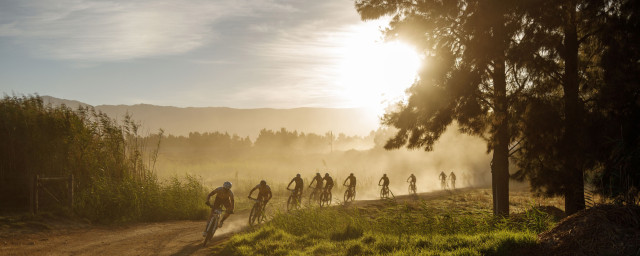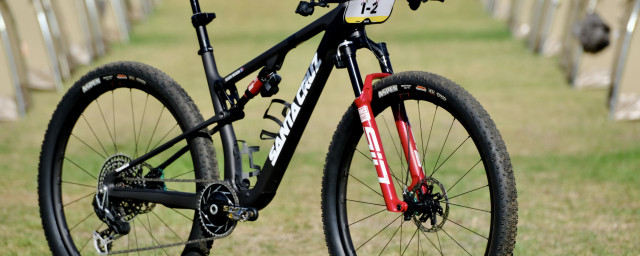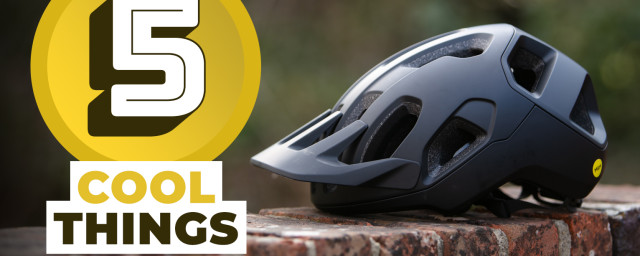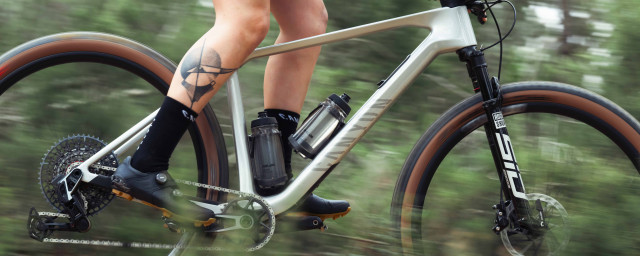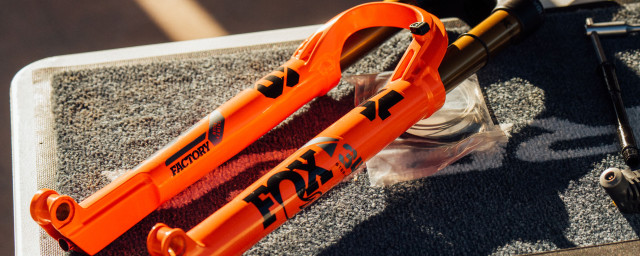Mountain bike nutrition - the art of training the gut and everything in between

Foolishly, I have decided to enter a cross-country mountain bike marathon race. For me, and this will vary from rider to rider, a full-gas three-hour effort on the bike will burn roughly 3200 kcal - more than enough energy expenditure to crack. So how on earth do I go about fuelling such an effort?
- Mountain bike fitness - how to improve your MTB performance
- MTB enduro racing for beginners - how to prepare for your first race
- 2023 UCI Mountain Bike World Cup schedule – a huge year in MTB
The event I had signed up for was none other than the British National Championships in Pippingford taking place on the 9 July. I have never done a marathon mountain bike race before, but because of its name, I assume the race will be quite long. In 2022 the men’s National Champs (which I’ll be racing) was won by Ben Thomas in just over four hours. The thought of four hours full of gas on bumpy terrain made me wonder how I might go about fuelling such an effort.
Mercifully, the 2023 marathon championships are a little shorter than last year and it’s likely the race will take just shy of three hours.
There are four key components that go into successfully fuelling a long race or ride. Firstly, in training, I need to train to tolerate large quantities of carbohydrates known as gut training. Secondly, during race week I need to load up on carbohydrates, the carb load. Then there is the race itself where I’ll be looking to dial in the combination of hydration, carbohydrate and caffeine consumption and finally, how is it best to recover from training and racing by timing my protein consumption smartly.
Training the gut
Since 2017 the scientific community has been very aware and united in the idea that the gut can be trained like a muscle. A substantial body of evidence suggests that the gut is trainable and that the gastrointestinal (GI) tract is highly adaptable. Gut training is the process of training your GI tract to be able to tolerate more carbohydrates at higher exercise intensities and for longer durations.
Previously, it was thought that athletes could digest a maximum of 60g of carbohydrates per hour during exercise but many endurance athletes now comfortably consume double this (which equates to around 6 energy gels per hour).
How to train your gut:
Start gradually, increasing your carbohydrate and fluid intake during training rides. This gradual progression allows your gut to adapt slowly, minimising discomfort. Taking too big a step in carbohydrate consumption can have ugly consequences…
Experiment with different nutrition options like energy gels, bars, and sports drinks to find what works best for you.
During long training rides, aim to replicate race conditions including clothing, nutrition products and your hydration strategy - never try anything new on race day! You’ll need to think through practical issues like what you can carry and how you’re actually going to consume your food (it’s not so easy to eat on a technical descent).
Carbohydrate loading
Carb-loading, a concept that has existed for over a century, gained recognition in the 1920s when it was discovered that carbohydrates played a vital role as a fuel source for active muscles. During this time, it became evident that low blood glucose levels were associated with fatigue experienced by marathon runners.
In order to learn about this I headed over to one of my favourite publications - The Journal of Applied Physiology, essential reading for mountain bikers I’m sure you’ll agree. There are a number of papers and reviews on carbohydrate loading but the principles are relatively time-tested. Carbohydrate loading can make a two to three per cent difference in events lasting more than an hour and a half, science has concluded. For a race lasting three hours, this difference could equate to around five minutes!
Practical Carb Loading Tips:
Increase your carbohydrate intake to 8-12 g of carbohydrate per kg of body weight per day, so an 80 kg rider would consume somewhere between 640g and 960g of carbohydrate (that’s up to 23 cups of white rice!).
Taper physical activity - reduce training volume and intensity as you increase carbohydrate intake two to three days before the race. For me, I do three days of reduced intensity and volume and three days of aiming for 700g of carbohydrates per day.
Cut fat intake - the only way to eat this many carbs is by cutting fat from your diet for the days leading into the race, otherwise, you’ll find yourself just feeling sick. I find my carb intake goes from around 50% to 75% of my overall food.
Don’t suddenly triple your carbohydrate intake, as an endurance athlete your carbohydrate needs are high - practice a carb load for a key training session in the lead-up to your race.
Fuelling the race itself
During the process of the actual race, getting your nutrition right can make or break your result. You’ll be able to fend off a bonk and feel stronger at the end - which is a marathon mountain bike race that can significantly impact your result. If you search for how to fuel a long race on the internet, generally you’ll get advice to eat some given amount of carbohydrate per hour during the event. You should instead carry out the strategy you’ve practised in training.
The general principles of fueling a long race such as a marathon mountain bike race are quite simple, the more carbs you eat - the harder you can go for longer. The upper limit of what you can eat will be dictated by the race’s duration, intensity and how well-trained you (and your gut) are. Don’t try a new fuelling strategy on race day!
Recovery
The main tricks to optimum recovery (from training and racing) are twofold, fuelling your sessions well and consuming protein afterwards. The old advice was to consume protein immediately after training but research now suggests otherwise. One study concluded that “the pattern of ingested protein, and not only the total daily amount, can impact whole-body protein metabolism. Individuals aiming to maximise [recovery] would likely benefit from repeated ingestion of moderate amounts of protein (~20g) at regular intervals (~3h) throughout the day.”
So make sure you don't stop paying extra attention to your nutrition at the finish line - but ensure proper recovery after the race.
Sum it up in three sentences for me…
If you want to fuel a long race or epic ride the principles are relatively simple. Train yourself to consume as much as you can, consume as much as you’ve trained yourself to do. To recover in training, consume around 20g once every three hours during the day to maximise recovery.






